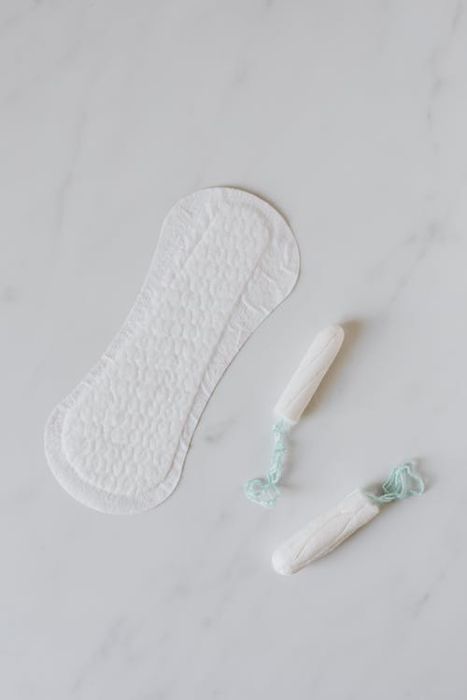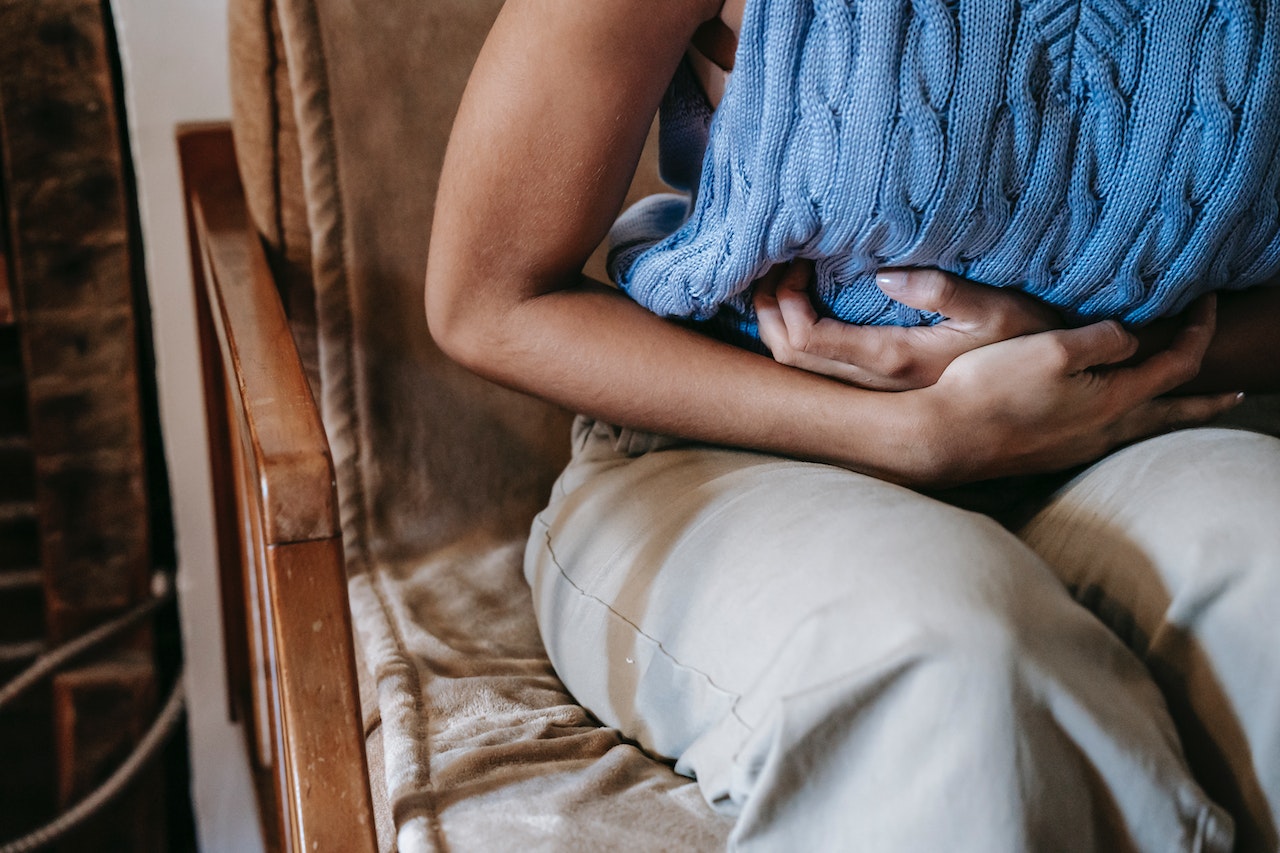Some women do not know their bodies well; they are shy and refuse to accept it. They think that it is not very comfortable to talk about menstruation. Often girls experience severe discomfort and even pain, but they do not dare to discuss this even with a doctor.
What exactly is the menstrual cycle?
The menstrual cycle is the monthly series of changes that a woman’s body undergoes in preparation for pregnancy. Each month, one of the ovaries releases an egg, which is known as ovulation. Simultaneously, hormonal changes prepare the uterus for pregnancy. If ovulation occurs but the egg is not fertilized, the uterine lining sheds through the vagina. This is a menstrual cycle.
What Are Signs Your Period Is Coming?
You will probably feel certain symptoms in the days leading up to your period, including:
Tender breasts
Changes in hormone levels before menstruation can cause pain, swelling, and tenderness in your breasts before your period.
Headaches
When estrogen levels drop before your period, it can trigger headaches, including migraines.
Abdominal cramps
Menstrual cramps are throbbing, cramping pains caused by excessive chemicals produced by your uterus before your period that make the muscles in your uterus tighten and relax.
Muscle aches
You may also feel pain in your muscles, resulting in body aches.
Lower back pain
The pain caused by your abdominal cramps can also extend into your lower back, giving you lower back pain in the days leading up to your period.
Fatigue
Hormone changes before your period can affect your brain chemistry, making you feel more tired before menstruation. This can also cause sleep problems, which can contribute to your fatigue.
Bloating
Changes in your hormones can cause you to retain water before your period, making you experience bloating.
Joint pain
Estrogen is a hormone that helps control joint pain, but right before your period, your estrogen levels go down. This can increase your joint pain.
Acne
Changes in hormone levels can make your body produce more oil, which clogs your pores. This can cause you to develop pimples before your period begins.
Diarrhea or constipation
Your digestive system can experience changes when your period is coming, causing you to have diarrhea or constipation.
Premenstrual syndrome (PMS)
Premenstrual syndrome, or PMS, includes the range of emotional and physical symptoms you may experience in the days leading up to your period. In addition to the physical symptoms listed above, you may also experience mood-related symptoms. These can include:
- Irritability
- Trouble focusing
- Anxiety
- Sadness
- Anger
- Lack of interest in talking to others
- Crying spells
But in this article, we will throw away the taboos and talk about the most common menstrual mistakes you make. It will help you to avoid those mistakes and fix the problem. Meanwhile, open the link to check out the best period app trackers.
Common Menstrual Mistake Most Women Make
Here are some mistakes you need to debunk during menstruation.
1. You Are Not Tracking Your Cycle
Most often, those women monitor their cycle who are planning a pregnancy. But this must be done by everyone. During a visit to a gynecologist, you can tell in detail about the duration of menstruation, their abundance, delays, and other details.
According to your calendar, the doctor will determine how the cycle is normal and, if necessary, will prescribe an additional examination. Your observations are the most useful information for the gynecologist that you can only provide if you track the cycle.
Mark on the calendar anything that raises questions: cycle failure, soreness, discoloration of discharge, unpleasant odor, and changeable mood. Use a paper notebook or apps on your smartphone. By tracking your cycle, you can plan your period’s onset and take extra hygiene products with you.
2. You Endure Menstrual Pain
Menstruation can be uncomfortable, but it shouldn’t affect your quality of life. Dysmenorrhea, or severe pain in the lower abdomen, occurs in 45–93% of women of reproductive age. But only 3% to 33% experience severe ailments: dizziness, high fever, vomiting, and other symptoms.
It is necessary to consult a gynecologist if painful sensations prevent you from working, walking, or leading a normal life. The doctor will select drugs and a course of treatment, after which the symptoms will become less pronounced.
Do not hesitate to ask your menstrual questions or complaints in your doctor’s office. You shouldn’t wait for a cycle of fear and anxiety. It’s okay to talk to your doctor about your period, but not to endure pain.
3. You Drink Alcohol
It is better to abandon alcohol and such beverages at the time of menstruation. Alcohol increases menstrual pain and malaise. And those girls who don’t control how much they drink are more likely to experience irregular cycles, anovulation, and amenorrhea.
Excessive alcohol consumption negatively affects the cycle, the reproductive system, and the body as a whole. Try limiting yourself to a glass of red wine if you want to relax when your period starts on a holiday.
It is the moderate consumption of alcohol that does not have a negative effect on women’s health. Besides, if you are addicted to such drinks, you better contact some rehab for addiction treatment and recovery.
4. You Choose The Wrong Hygiene Products
Throughout her life, a woman lives an average of 435 cycles. The constant and prolonged use of inconvenient hygiene products provokes the development of an inflammatory process. And blood cells in a warm environment can decompose.
Moreover, most products cause discomfort. Unpleasant sensations can be associated with spasmodic contractions of the uterus and irritation of the external genital organs.
This happens due to the surface of the pads or with a feeling of bursting from a filling tampon. Don’t get hung up on classic hygiene products; there are many options, from absorbent underwear to menstrual cups, you can try.
5. You Ignore Bad Smells
During menstruation, it is especially important to maintain personal hygiene. Take a shower at least twice a day, carry spare hygiene products, change of linen, and napkins with you. All this will help get rid of the unpleasant odor.
But sometimes, girls notice that menstrual blood has a specific smell: metallic, rotten, or fishy. You need to discuss such symptoms with a doctor and, if necessary, undergo additional examination.
6. You Spend All Your Days In Bed
Many girls wait out their periods in bed, minimize activity, and just lie there. This is wrong as at rest, the blood stagnates, and periods can become more painful. Thus, it is necessary to do some moderate exercises during menstruation.
You can leave the gym for a few days and skip running for an hour if exercise provokes increased blood flow and makes the discharge more abundant. At the same time, try to walk more often in the fresh air, do walking, yoga, Pilates, and stretching. But if you want to skip bicep stretches for some days, it’s alright.
You can do certain other aerobic exercises that can reduce pain caused by uterine spasms. Always listen to your body and try to go to bed an hour earlier during your period. Your body needs more strength to recover during these days, so sleep properly.
7. You Don’t Replenish Your Iron Needs
Due to the loss of blood, a large amount of iron gets excreted from the woman’s body. In general, this is not dangerous. But if you do not replenish iron stores, you may develop anemia – a pathological condition characterized by a low level of red blood cells. You may feel weak, sleepy, fatigued – these are the symptoms of iron deficiency anemia.
Try to include red meat, spinach, buckwheat, legumes, liver, mushrooms, seaweed, cauliflower, pumpkin seeds, black currants, lentils, and beets during your period. These foods are a source of iron that will make you feel better. You can take iron supplements or vitamins, but only after consulting your doctor.
Do’s And Don’ts During Your Periods
In a world full of misinformation and misunderstanding about menstruation, we have compiled a scientifically-backed list of do’s and don’ts for you to follow.
A woman’s menstrual cycle lasts about seven years on average. That’s a lot of time spent dealing with cramps, aches and pains, fatigue, and so on. Furthermore, misinformation or a lack of correct information may exacerbate these days of the month. In addition, we discuss some dos and don’ts that can help make this time of month easier.
Here are our scientifically-backed, do’s and don’ts for your menstruation cycles:
Do’s
Warm showers
Warm showers are a great way to relax and have been shown to help relieve cramp pain. Taking a shower or washing one’s hair during a period has been frowned upon for many years. However, studies show that there are no negative consequences to doing so.
Exercise
Exercising has been shown to be an excellent way to relieve stress and increase happy hormones in the body. It may also help relieve some of the pain from your period cramps. Engaging in some cramp-relieving yoga may be even more beneficial.
Hydrate
Drinking plenty of water and eating water-rich fruits and vegetables is good for you at any time of year. Menstruation, on the other hand, can cause dehydration, headaches, and discomfort. You can try to eat healthier foods, such as curbing sugar cravings by eating fresh fruits instead of a cake or pastry.
Eat dark chocolate
Yes, dark chocolate is extremely beneficial during your period. To begin with, it is a far healthier alternative to sugary junk foods. Second, dark chocolate contains a lot of iron and magnesium. Magnesium has been shown to reduce the severity of period symptoms and may help relieve stress.
Eat more protein
Protein-rich foods are recommended by doctors because they energize the body and reduce fatigue. Furthermore, foods high in protein keep you feeling fuller for longer.
Better hygiene
Showering on a regular and proper basis is essential for living a healthy and disease-free life. Furthermore, your body may be more susceptible to infections during your periods. As a result, doctors advised changing sanitary products every few hours and showering frequently to avoid infection.
Don’ts
Unprotected sex
Sexual intercourse during your period is completely normal and common. Many people, however, mistake period sex for a pregnancy-safe option. Contrary to what some untrustworthy sources claim, period sex can lead to pregnancy. Furthermore, protected sex keeps you safe from contracting STDs.
Junk food
As previously stated, your body requires a nutrient-rich diet as well as plenty of water to deal with the symptoms of your cycle. In fact, your diet has an impact on the severity of your symptoms. Junk foods are high in sugar and salt, which can make you feel even worse and worsen your cramps. Junk foods can also cause bloating.
Coffee
Caffeine has been shown in studies to constrict our blood vessels. This aggravates period symptoms and can be uncomfortable. You don’t have to completely eliminate it from your routine, but try limiting your caffeine intake to one cup per day during your cycle.
Heating pads
Heating pads can be comforting and may make you feel better. Using heating pads or heating bottles on the lower abdomen can have a negative impact on your body’s connective tissues. Because of the heat, these tissues may soften and harden, exacerbating the cramps.
Alcohol
As much as alcohol is widely accepted as a means of unwinding and relaxing. Alcohol is a depressant that has been scientifically proven. This means that drinking alcohol can exacerbate any pre-existing negative feelings or anxiety you may be feeling during your period.
Staying up late
Being on your period can be exhausting in and of itself. As tempting as it may be to stay on your phone, try to go to bed on time and get the necessary amount of sleep. Getting 7-8 hours of sleep each night may help you overcome fatigue and lethargy.
Take Away
Having regular menstruation is a sign of a healthy woman, but some of the mistakes that ladies make during this time may lead to other problems. It includes delay in menstruation, heavy bleeding, and pain. You can avoid these problems by debunking the mistakes mentioned earlier and keeping a check on your health.





